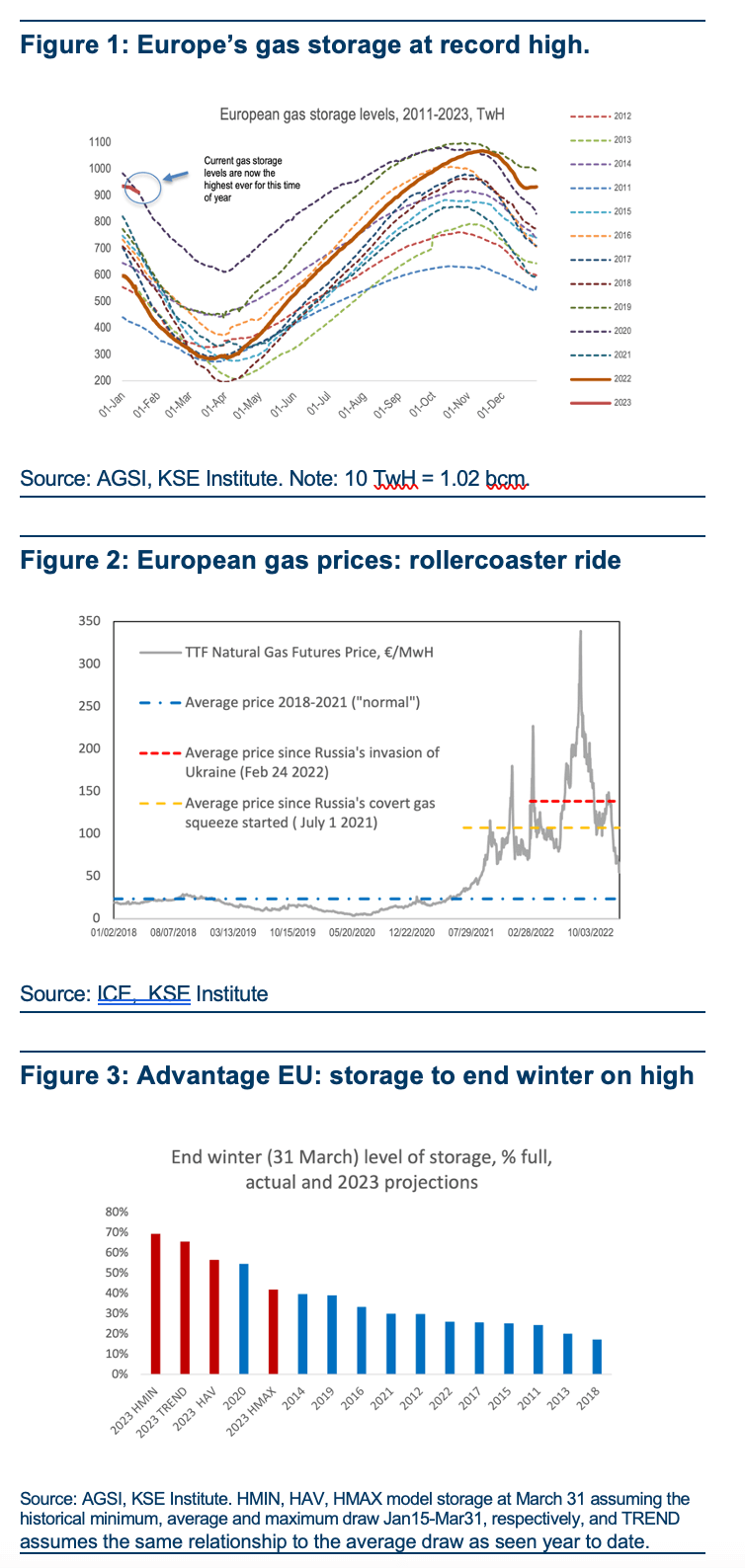- Kyiv School of Economics
- About the School
- News
- European Energy Update: Gas Advantage Shifts to Europe
European Energy Update: Gas Advantage Shifts to Europe
18 January 2023
On January 15, Europe’s gas storage hit a record high for this point in the year, around 40 bcm higher than this time last year. Up to now Russia has taken the initiative on the gas front, by squeezing and cutting off supply in an effort to deter Europe from supporting Ukraine. Now, Europe’s strong supply position give it the advantage. We propose Europe use this advantage to squeeze the squeezer, terminating direct Russian gas supply to Europe in 2023. In particular, we propose the EU should now ban Russian supplies via the Turkstream pipeline (13 bcm of supply in 2022), and ban Russian LNG imports (19 bcm of supply in 2022).
A record adjustment: Russia’s supply squeeze over the last 18 months has driven European gas prices to record levels. But this has triggered rapid adjustment, with a surge in supply from other sources, particularly LNG, and a sharp drop in consumption. As a result, 2022 saw the largest build in gas storage ever. And this performance has strengthened further since summer even as Russia’s actual gas deliveries fell to one-sixth of pre-invasion levels. As the market has realised the scale of this adjustment – with the draw this winter so far the most modest on record leaving gas in storage at a high for this time of year (Figure 1) – gas prices have fallen back from the August peak of 14x pre-invasion levels to just 2x pre-invasion levels (Figure 2).
Estimating the winter draw: Weather is of course unpredictable, with the draw on storage from January 15 to March 31 averaging 279 TwH over the last 12 years, with a range of 135-442 TwH. But even on the most pessimistic scenario, the level of gas in storage on exit from this winter would be the second highest ever, and a normal summer build would then leave storage over 90% full going into winter 2023/24. On the more likely outcome of an average to optimistic scenario, European storage will be full well before the end of the injection season (Figure 3).
Time to turn the tables on Russia: Backed by this strong supply position, Europe can now turn the tables and squeeze the squeezer. Originally in Repower EU the Commission proposed to achieve independence from Russian gas “well before 2030”. This can now be accelerated to 2023. Specifically, we propose that the EU as a whole follow the lead of Poland and Germany, and ban imports of Russian LNG, and further that the EU implement the third energy package in a more rigorous way, and ban imports from Russian-controlled pipelines which are not operated on a competitive basis. This will block flows resuming on the Nordstream and Yamal pipelines, and switch off the Turkstream pipeline. This leaves the Ukrainian GTS as Russia’s sole remaining channel of gas sales to Europe – ending Russia’s long-standing effort to send gas to Europe around Ukraine, and potentially boosting Ukraine’s energy security and leverage.
Jacob Nell, Senior Research Fellow

